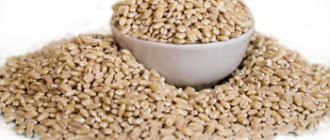Lemon is a sour fruit that is classified as a citrus fruit. It has different sizes, the color of the peel can be different shades of yellow and orange. The fruit has juicy pulp, a peel with a thickness of 3 to 7 millimeters. It is consumed fresh and dried, added to baked goods, salads, fish and meat dishes, and used to prepare refreshing drinks and cocktails. It has undeniable benefits for the human body. Lemon is especially valuable for those who are on a diet, as it has low calorie content and high nutritional value.
general characteristics
Content:
- general characteristics
- The nutritional value
- Beneficial features
- Health Benefits
- Benefits of Lemon Water
- Possible danger from consumption
- Use in cooking
- Lemons in cosmetology
- Other uses of lemon
Lemon is a hybrid plant of the citrus genus. It is believed that the ancestors of all citrus fruits known today are citron, pomelo and tangerine. All the rest are hybrids, resulting from mixing between these species and their “descendants”. Lemon, as scientists believe, is the “child” of citron and mandarin. It is believed that its homeland is the Deccan Plateau in central India. But when that very first lemon appeared on the planet, scientists cannot yet answer.
The first images of citrus fruits appeared on Roman mosaics, and the first surviving written descriptions of lemons date back to the beginning of the 10th century (found in Arabic treatises). In the Middle Ages in the Mediterranean countries, lemons were no longer something exotic. The fossilized remains of these fruits were found in the ruins of Pompeii. And at one time in Britain, this citrus was used to save the Royal Navy from scurvy.
The tropical and subtropical lands of Southeast Asia are considered native to plants of the rue family, to which lemon actually belongs. Lemon trees can grow up to 10m tall, but in general most plants are much smaller. Their open canopy is easily recognized by its thorny branches and white and purple fragrant flowers. Their leaves are shiny, rich green, elliptical in shape. The fruits are sour, juicy, oval-shaped with aromatic skin, usually yellow. The pulp is divided into slices.
Today, these fruits are grown commercially in Italy, Spain, Greece, Argentina, and the USA.
Lemon or lime: which is better (video)
If you can’t decide which is healthier – a classic lemon or an exotic lime, then hurry up and watch this video. It will help put everything in its place and answer questions regarding the benefits and properties of these citrus fruits.
We also recommend reading about the calorie content of boiled corn. And if you often eat chicken breast, then be sure to find out how many calories it contains. Or maybe you will be interested in learning about the calorie content of walnuts? And be sure to read the article on the calorie content of honey.
So we learned about how many calories there are in lemon, and what properties this fruit has. We hope that this information will be useful to our readers. And if you have any questions, or maybe you want to share your information, write in the comments!
Author of the publication
The nutritional value
One medium lemon without peel (approximately 58 grams) contains about 17 calories, about half a gram of protein, 0.2 grams of fat and 5.4 grams of carbohydrates. In addition, the fruit will provide the body with a small portion of thiamine, riboflavin, pantothenic acid, vitamin B6, calcium, iron, magnesium, phosphorus, potassium, copper and manganese.
Nutritional value per 100 g
| Calorie content | 29 kcal |
| Water | 89 g |
| Squirrels | 0.4 g |
| Carbohydrates | 5.4 g |
| Fats | 0.2 g |
| Vitamin A | 1 mcg |
| Vitamin C | 54 mg |
| Vitamin E | 0.16 mg |
| Thiamine (B1) | 0.05 mg |
| Riboflavin (B2) | 0.03 mg |
| Niacin (B3) | 0.2 mg |
| Pantothenic acid (B5) | 0.2 mg |
| Pyridoxine (B6) | 0.09 mg |
| Folic acid (B9) | 11 mcg |
| Kholin | 5.1 mg |
| Calcium | 25 mg |
| Iron | 0.7 mg |
| Magnesium | 7 mg |
| Phosphorus | 15 mg |
| Potassium | 139 mg |
| Sodium | 3 mg |
| Zinc | 0.07 mg |
| Copper | 0.05 mg |
| Manganese | 0.04 mg |
| Selenium | 0.3 mcg |
BJU citric acid
The chemical formula of citric acid is C6H8O7. It is a crystalline white powder with high solubility in water and ethyl alcohol.
In nature, it is present in significant quantities in many products:
- citrus fruits,
- needles;
- rose hips, etc.
Since the beginning of the 21st century, the entire volume of the product has been obtained through the biosynthesis of carbohydrates under the influence of mold fungi.
In 2012, global production of citric acid amounted to 1.6 million tons. In the food industry, citric acid is called food additive E330.
Unlike fruit juice, citric acid juice does not contain nutrients and has no nutritional value.
Interesting! 4 g E330 is equivalent to the juice of 1 medium lemon.
Beneficial features
Lemons contain a large number of different chemicals that scientists believe have beneficial properties for humans.
By the way, the characteristic smell of lemons is the “work” of the terpene D-limonene (a class of carbons). And citric acid, contained in large quantities in the fruit, is responsible for the sour taste.
These yellow citrus fruits are also known for their high concentrations of ascorbic acid (vitamin C), a deficiency of which causes serious illness. Interestingly, 100 ml of lemon juice contains almost 50 mg of vitamin C, which is more than half the recommended daily intake. Due to its high ascorbic acid content, lemon has gained fame as a tonic, beneficial for the digestive and immune systems, as well as for skin health. But not everything is so rosy. Ascorbic acid in lemon juice is destroyed very quickly: after 8 hours at room temperature, lemon juice loses approximately 20 percent of vitamin C; in the refrigerator, the same amount of vitamin evaporates after 24 hours of storage.
But flavonoids contained in lemons, according to scientists, have anti-cancer properties. They inhibit the growth of malignant cells and remove carcinogens from the body. In Ayurvedic practice, a glass of warm water with lemon juice is a means of toning the liver and removing toxins from it.
In addition, lemons are useful for preventing diabetes, constipation, hypertension, indigestion, and also for maintaining healthy hair, teeth, skin, and nails. And urologists are confident that lemon juice eliminates the risk of kidney stones because it promotes the production of urinary citrate, which prevents the formation of crystals.
The benefits of lemons are due to their rich chemical composition. This fruit supplies the body with such elements as:
- vitamin C;
- B vitamins;
- vitamin A;
- vitamin E;
- copper;
- iron;
- calcium;
- magnesium;
- zinc;
- potassium;
- phosphorus;
- flavonoids.
Lemon juice is useful for:
- throat infections;
- kidney stones;
- increased risk of stroke;
- low body temperature;
- stomach diseases;
- constipation;
- dental problems;
- fever;
- rheumatism;
- arthritis and polyarthritis;
- burns;
- obesity;
- breathing problems;
- cholera;
- weakened immune system.
Features of use
In order not to harm the body and get all the necessary vitamins, you should consume lemons moderately and correctly:
- For a healthy person, 2 citrus rings with peel are enough per day. This will help make up for the deficiency of valuable components.
- Children from 3 years old are allowed to give a quarter of the ring, sprinkled with sugar. After 7 years, this dose can be increased to half a ring.
- From the age of 14, a child is entitled to the adult norm.
If you have problems with the gastrointestinal tract, you should not eat the fruit on an empty stomach. If a person is overweight, you should not overuse sweeteners when consuming lemon.
In order to lose weight, it is recommended to eat the product with the peel: it contains a large number of valuable components and is easily absorbed by the body. The norm per day is 2 rings 5-6 mm thick.
The daily norm for patients with peptic ulcers is 1 ring or tablespoon of lemon juice, diluted with water in equal quantities. If you experience discomfort when using the product, you should discard it and consult a doctor.
Health Benefits
Consumption of vegetables and fruits has always been associated with a reduced risk of various diseases. Here are just some of the health benefits of consuming lemons.
Reducing the risk of heart disease
According to American researchers, regular consumption of lemons helps reduce the risk of developing coronary heart disease, and in women the percentage of disease prevention is much higher than in men (about 19%). In addition, consuming fiber from citrus fruits has been found to be effective in lowering blood cholesterol levels. The essential oils contained in lemon play a similar function in the human body.
Fight against cancer
Being a very rich source of the powerful antioxidant vitamin C, lemons and the juice of these fruits help fight cancer-causing free radicals.
Boosting immunity
Foods high in ascorbic acid and other antioxidants help the immune system fight germs that cause colds or flu. For this reason, it is important to include lemons and other citrus fruits, such as oranges, tangerines, and pomelo, in your menu during the cold season.
Anemia protection
Iron deficiency is one of the most common causes of anemia.
Eating foods rich in vitamin C, such as lemons, will help enhance the body's absorption of this mineral. Studies have shown that the combination of ascorbic acid and ferrum promotes better absorption of these beneficial substances. For this reason, a salad of spinach leaves dressed with lemon juice is an extremely effective remedy against anemia.
Preventing Asthma
Scientists have made an interesting discovery. It turns out that people lacking ascorbic acid are more likely to develop asthma. If you want to protect yourself from this disease, drink tea with lemon.
Maintaining a healthy complexion
Lemon, as a source of vitamin C, is essential for maintaining healthy and youthful skin. The thing is that this sour fruit is important for the production of collagen, which, in fact, is responsible for maintaining skin health. In addition, antioxidants protect the epidermis from solar radiation and the environment.
Contraindications
Like any citrus fruit, lemons, saturated with essential oils and containing a large amount of acid, have limitations in their use.
They are not recommended:
- people prone to allergic reactions;
- for peptic ulcers or any gastrointestinal problems;
- for stomatitis or increased sensitivity of teeth;
- for acute sore throat (as an additional irritant);
- in case of acute or chronic pancreatitis.
Interesting! The most vitamin C per 100 grams is not in lemon, but in rose hips.
Benefits of Lemon Water
The benefits of this drink are talked about all over the world. It is customary to drink it warm on an empty stomach. It is said that drinking lemon water daily not only strengthens the immune system, but also prevents the development of incurable diseases. You can prepare this drink in just a couple of minutes in the morning. Simply squeeze half or a whole lemon into a glass of warm water.
Warm water itself, drunk on an empty stomach, is an excellent start to a new day, as it promotes the proper “start-up” of all organs, especially the digestive system. Lemon juice flushes out toxins and waste from the body, activates the liver and intestines, and has a mild diuretic effect.
Like whole fruits, lemon water strengthens the immune system, affects skin health, and enriches the body with additional energy. But perhaps the most paradoxical property of this sour citrus drink is that it reduces the overall acidity of the body. This acidic product, when entering the body, becomes alkaline and thus neutralizes excess acid in the body (for example, uric acid in the joints, which causes inflammation and pain).
Another benefit of drinking lemon water daily is improving your mood.
Scientists have proven that the aroma of citrus fruits affects brain cells, improving overall well-being and mood, relieving depression and anxiety.
Also, although lemon water contains almost no calories, it is still a good source of energy.
How to choose a lemon?
Perhaps the only criterion worth focusing on is the peel. Thanks to it, we can understand how fresh the fruit is.
- The peel should be bright yellow, which means the fruit is ripe. An unripe fruit has a matte coating on the skin, while one that is already ripe has a slight shine.
- Defects. If scratches, blackening, or black spots are visible on the surface, this indicates that the fruit was frozen. If you want to purchase a lemon without a bitter taste, avoid extraneous stains.
- The lemon scent should ooze through the skin. If it doesn't smell, it means a lot of chemicals were used to grow it.
- A fruit with a smooth, thin skin means it contains the highest amount of nutrients.
- If you squeeze a lemon and it does not spring back, this indicates that the fruit is overripe.
Note! Often, sellers resort to tricks by packing lemons in opaque packaging so that the buyer cannot understand whether the product is spoiled or not. This is done in order to quickly sell low-quality goods.
Use in cooking
Lemon juice is primarily used for culinary purposes. Although the zest has also found its use, mainly for baking. This fruit serves as the basis for lemonades and other drinks, including alcoholic ones. In Italy, the lemon liqueur limoncello is made from yellow citrus fruits. And marmalade is made from boiled lemons.
Chefs also like to add this fruit to salads, as a dressing for side dishes and boiled meat. Fresh lemon juice is squeezed into fish dishes and into meat marinade (in this case, hard fibers are softened).
Some people like to eat fresh lemons with sugar. But after such a sweet and sour meal, it is important to rinse your mouth thoroughly, as acid destroys teeth and can cause some dental diseases.
Another way to use lemon juice is as a short-term preservative. If you sprinkle sour juice on sliced apples, they will not darken longer.
A little trick: to increase the amount of juice, just before eating, just put the fruit in the microwave for a few seconds or leave it in the sun for a while. But storing fruits at room temperature makes them more vulnerable to mold.
The dried, crushed leaves of this plant have a lemony flavor but are not acidic.
Interestingly, lemongrass, lemon balm, verbena, lemon thyme, scented geranium and some varieties of mint also have a lemony smell and taste. So they can replace lemons if necessary.
Dangerous properties and harm of lemon
You should pay attention to two features of the fruit: too sour, sharp taste and a specific smell due to the presence of essential oils in the citrus skin. Sensitive people are allergic to lemon, as well as to any citrus.
Despite all the benefits, lemon also has contraindications for use, which are:
- corrosion of tooth enamel by acidic juice;
- inflammation and irritation in the oral cavity;
- stomach ulcer during an exacerbation;
- heartburn and high acidity of gastric juice;
- indigestion;
- child's age up to one year.
It is important not to consume lemons and zest in unlimited quantities. Adding juice to various dishes or citrus slices to tea does not have negative health consequences.
Despite the strongly sour taste with hints of citrus, the fruit remains popular not only in nutrition. With its help, they solve everyday problems, fight colds, improve their appearance, and turn to folk recipes when a health problem arises. Yellow citrus is healthy and loved, and it’s hard to believe that it came to us from overseas countries and is not an original Russian product.
Lemons in cosmetology
This sunny fruit in any form is good for skin, hair, and nails. Here are some secrets on how to use lemons to improve your appearance.
Anti-wrinkle remedy
Lemon juice has the ability to rejuvenate, brighten and tighten the skin. It is enough to apply its juice to your face in the morning and before bed for 10-30 minutes, and then rinse off.
Hair lightener
Lemon juice applied to your hair will help lighten it a tone or two. Of course, the effect will not be noticeable immediately, and, of course, you cannot become a platinum blonde this way, but the result will still be noticeable. In addition, fresh lemon juice will enrich your hair with many vitamins and other beneficial substances, making your curls shiny, strong and healthy.
Beautiful lips
Applying a small amount of lemon juice to your lips before bed can help remove dead skin cells more easily.
Natural deodorant
If you apply lemon juice to your armpits, you don’t have to worry about the unpleasant smell of sweat. Citrus juice kills bacteria, which, in fact, are the cause of sweat odor.
Acne cure
Sour lemon juice with low pH has antibacterial properties, thanks to which it can cure acne, Staphylococcus epidermidis, and acne. In addition, lemon cleanses the skin of oil and dirt, removes dead cells, prevents clogged pores, gets rid of cystic acne, and prevents the occurrence of blackheads.
Strengthens nails
A mixture of olive oil and lemon juice applied to the nails strengthens them and eliminates brittleness, dryness and yellow color. Lemon juice also helps fight fungal infections.
Cosmetic uses of the fruit
Lemon is widely used as a cosmetic product at home:
- You can lighten your hair using lemon juice mixed with coconut oil. You need to apply the mixture to your hair and go for a walk on a sunny day.
- Lemon will help fade freckles on the face and body, as well as age spots. To do this, soak a cotton pad with lemon juice and apply to the appropriate areas of the skin.
- To brighten your facial skin, add lemon juice to your moisturizer.
- Lemon juice will strengthen your nails. Make a hand bath from lemon pulp and olive oil.
- Lemon juice will get rid of dandruff if you rub it into the scalp with massage movements.
The juice is successfully used as a facial toner to get rid of acne.
Other uses of lemon
And although cooking is the most famous area for using lemons (it is used to make juices, seasonings, and added to salads, meat, fish), it is far from the only one. This citrus is considered useful in perfumery, cosmetology, for polishing furniture, and is also grown as an ornamental tree. By the way, the juice of this fruit contains approximately 5% acid, which makes lemon an accessible raw material for this substance. Lemon juice is also an effective remedy for getting rid of ink stains. And in Japan, lemon essential oils are used in aromatherapy as a stress reliever.
This sunny exotic fruit is delicious. And even though outwardly it is not the most striking representative of the genus, its list of beneficial properties makes it the king among citrus fruits.
More fresh and relevant information about health on our Telegram channel. Subscribe: https://t.me/foodandhealthru
We will be grateful if you use the buttons:
Lemon for weight loss
The benefits of lemon for losing extra pounds are confirmed and proven. An important component of a woman's image is her figure. There is a lemon diet that will help you lose 4-5 kg in 2 weeks. To do this, you do not need to eat lemons, but drink a glass of lemon juice diluted in half with still water on an empty stomach for 14 days. Take the rest of your food as usual, limiting yourself to flour and fried foods.
Citrus helps:
- break down fats;
- relieve hunger;
- speed up metabolic processes;
- remove toxic compounds.
Since citric acid can negatively affect tooth enamel, especially with prolonged consumption, it is advisable to rinse your mouth with water and soda after drinking juice (1 teaspoon of soda per glass of water).
How many calories are in a lemon with peel (per 1 piece and per 100 grams)
The beneficial properties of citrus fruits, one of which is lemon, can be listed endlessly.
The calorie content of 100 grams of the healthiest lemon is only 34 kcal.
It can not only improve the taste and aroma of any dish, but also increase the benefits many times over.
An average lemon weighs approximately 130 grams and contains 44 calories.
Calories in lemon water
Water is an ideal drink for weight loss, having no calories at all.
Adding a teaspoon of lemon juice (10 grams) to water will add only 2.2 calories to the drink.
The calories in lemon water are determined only by the calories in the lemon juice you use. The same rule applies to tea with lemon.
Water with lemon juice is just as great a diet drink as plain still water or unsweetened green tea.
The fight against excess weight means burning fat that we all hate. In order to experience weight loss, it is necessary to calculate the daily diet with a calorie deficit, only after that the body will begin.
Keeping track of your daily caloric intake is an important part of a healthy diet, so when calculating your diet, you need to take into account the nutritional value of all the foods you eat. Fried chicken egg calories.
Oatmeal or rolled oats are the most popular breakfast product, which both adults and children are advised to eat. The calorie content of oatmeal with milk ranges from 113 to 149 calories per 100.
A dish called “shawarma” entered our diet relatively recently. It came to us from the Middle Eastern countries, where it has been a traditional food for many centuries. Called in different Arab countries.
All nuts are high-calorie foods. They contain a lot of vegetable protein, which has a unique composition and is easily digestible. Therefore, nuts are loved by vegetarians and those who...
Lemon recipes
Photo: Lemon cross-section
The berries are added to recipes for sweet or savory dishes, to which lemons impart a sour taste. They are used to make juice, drinks and syrup. The zest is used in cooking as a seasoning. It can be candied, used fresh in baked goods, or dried and added to tea mixtures.
Lemon mint lemonade (6 servings)
Products:
- peppermint leaves - 1 handful;
- water - 1.5 l;
- sugar - to taste;
- freshly squeezed lemon juice - 100 ml;
- sparkling mineral water;
- ice cubes;
- frozen fruit, diced.
Preparation:
- Pour boiling water over fresh mint and brew strong tea. After at least 10 minutes, remove the leaves.
- Add sugar and lemon juice to the infusion and stir well. Let cool, then put in the refrigerator.
- When the lemonade has cooled, add ice cubes.
- Fill the glasses about halfway with lemonade. Add mineral water and stir.
Tip: the drink will become even tastier if you add sliced citrus fruits and mint leaves to it.
Ginger with lemon for weight loss
Squeeze the juice from two berries and heat slowly along with the chopped ginger root. As soon as the liquid boils, turn off the stove and add a liter of water and some lemon peels. Pour the drink into a bottle and drink before each meal. It helps burn fat, improves digestion, prevents stagnation of urine, and relieves bloating.
Dandelion jam with lemon (1 liter)
Products:
- dandelion heads - 250 pcs.;
- sugar - 1 kg;
- lemon - 1 pc.
Preparation:
- Wash the inflorescences, cut off the green part. Place the flowers in a small saucepan and add water (1 liter).
- Cut the lemon into any pieces, remove the seeds. Place the citrus in the pan.
- Bring to a boil, reduce heat to low, cook for 5 minutes. Cool, cover and place in the refrigerator.
- After 10–12 hours, strain the infusion. Squeeze the flowers well.
- Add a kilogram of sugar. Place on the fire and stir until the crystals are completely dissolved. Cook over low heat for 30 minutes.
- Pour into small sterile jars.
What are the benefits of peel and zest?
Many people eat only the pulp of the fruit, throwing away the zest and peel. But when considering what vitamins are contained in lemon, these components of the product were also taken into account.
Healing qualities of the zest:
- lowering cholesterol levels;
- removal of toxins from the body;
- protection against diabetes;
- restoration of gums, prevention of gingivitis and scurvy;
- normalization of pressure;
- strengthening bones, preventing arthritis and rheumatism;
- assistance in weight loss;
- improving blood circulation;
- eliminating ear infections;
- stroke protection;
- liver cleansing;
- normalization of the circulatory system.
Knowing what vitamins are contained in lemon, you can be cured of many diseases and protected from their occurrence. At the same time, remember the importance of the peel. Its action is as follows:
- giving additional energy and tone;
- strengthening the heart and ensuring vascular flexibility;
- relieving redness due to sore throat;
- help with viral infections and respiratory diseases.











